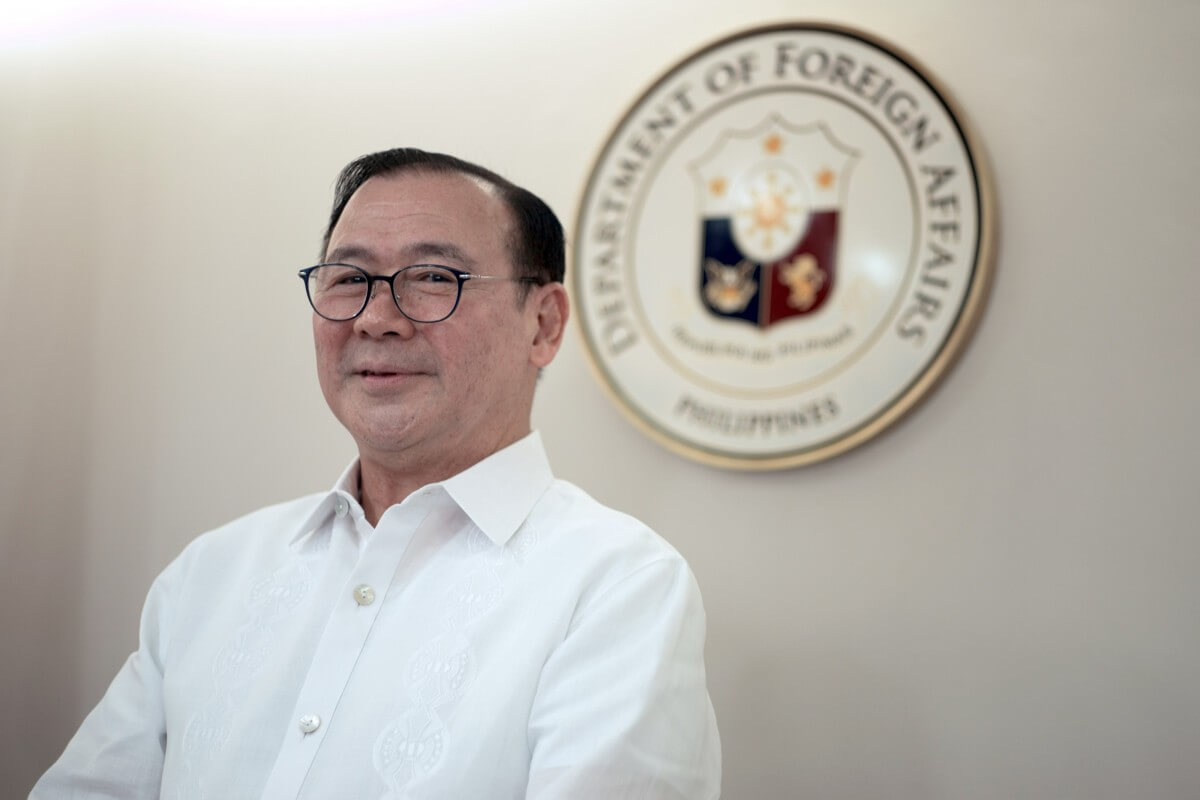The Philippines’ Foreign Affairs Secretary Teodoro Locsin has said that the country is preparing to counter Chinese aggression in the South China Sea using Beijing’s own strategy—by building up its fleet, which includes fishing boats, and by swarming the disputed waters.
Mr. Locsin said that the chances of an accident in such a scenario dramatically increase, and if one of the country’s military vessels gets hit in the process, it would trigger the Philippines’ defense treaty with the United States (US). The Philippines’ military has emphasized the importance of the country’s defense ties with the US to secure its national interests and ensure a balance of power in Asia.
The remarks by the top diplomat come amid an increased resolve by the southeast Asian nation to stand up to Chinese aggression in the region. Though Duterte initially refrained from pressing China on its assertiveness in the region, arguing that his country could not afford to challenge Beijing militarily, his administration has taken a much stronger stance against Chinese actions in the waters recently, claiming that they breached international law. During his address to the United Nations General Assembly (UNGA) in September (his first since entering office), Duterte expressed his strong support for the 2016 decision by the Permanent Court of Arbitration (PCA), which ruled in favour of the Philippines in a case against China over the latter’s maritime claims in the disputed sea.
The tribunal had ruled in favour of Manila’s queries that: China’s nine-dash line claim and accompanying claims to historic rights had no validity under international law; that no feature in the Spratly Islands, including Taiwan-occupied Itu Aba (or Taiping Island), is an island under the United Nations Convention on the Law of the Sea (UNCLOS); and that the behaviour of Chinese ships physically obstructing Philippine vessels is unlawful.
To that end, Manila also announced earlier this month that the Navy plans to deploy over 200 armed militiamen to the West Philippine Sea to execute patrols and protect fishermen being harassed by “encroaching” Chinese forces.
Chinese foreign ministry spokesman Wang Wenbin said on Wednesday that Beijing was willing to work with Manila to ensure peace and stability in the South China Sea. China has also warned Asian countries to be vigilant of US’ “disruptive actions” in the region, adding that the country only aims “to trumpet the old-fashioned cold war mentality and start up confrontation among different groups and blocks, and stoke geopolitical competition”.
Philippines Increasing Presence in South China Sea to Counter China
Foreign Affairs Secretary Teodoro Locsin has said that the country is preparing to counter Chinese aggression in the South China Sea using Beijing’s own strategy.
October 29, 2020

Filipino Foreign Affairs Secretary Teodoro Locsin. SOURCE: SOUTH CHINA MORNING POST
